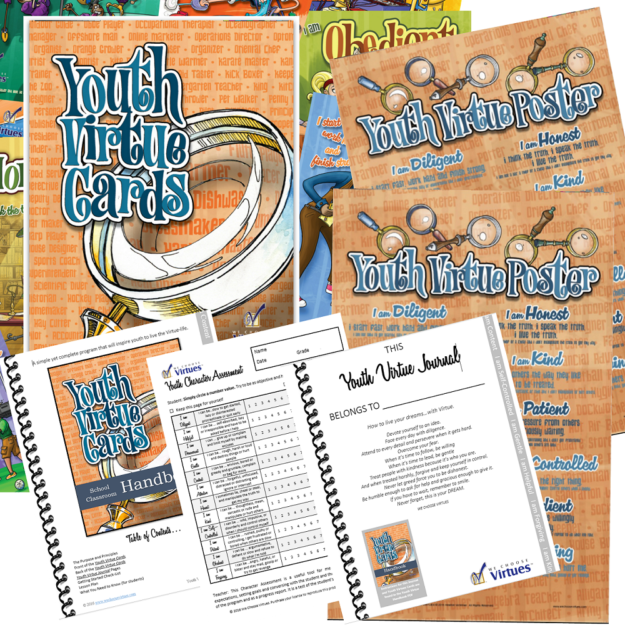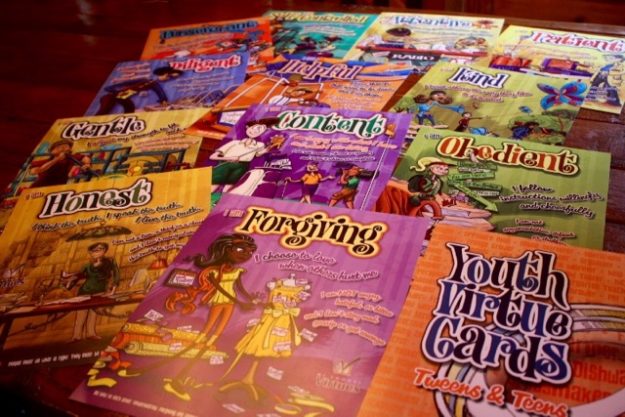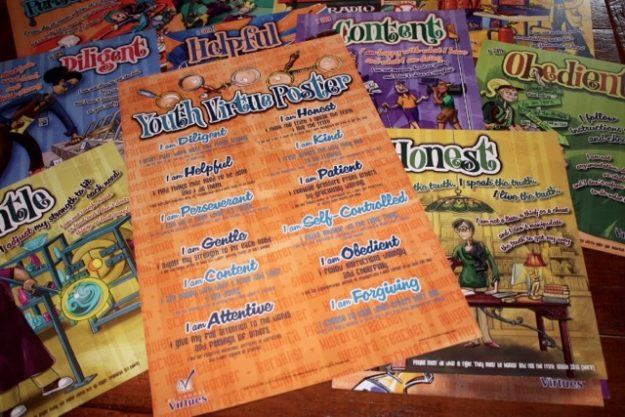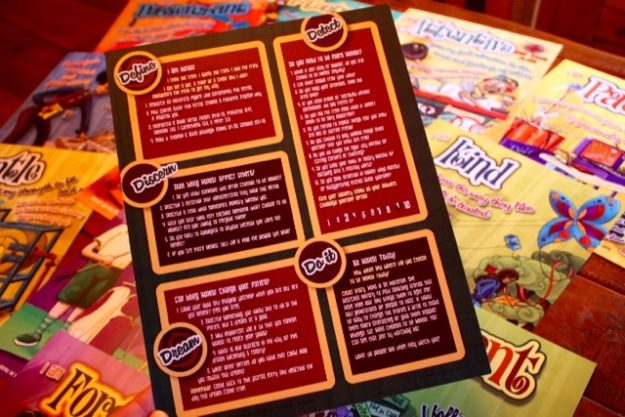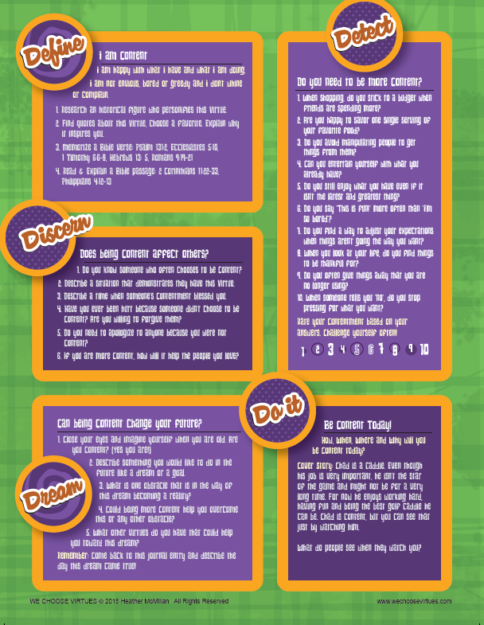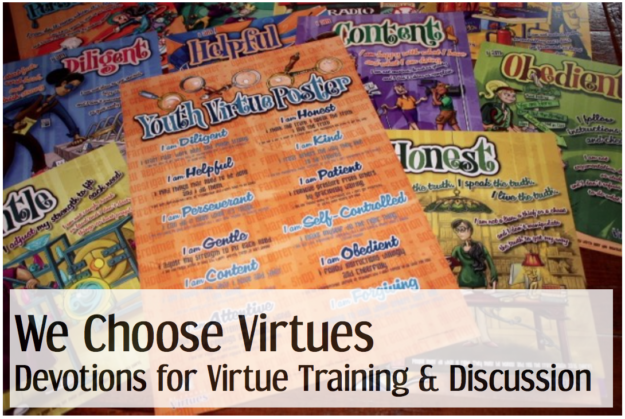Finally, brethren, whatsoever things are true, whatsoever things are honest, whatsoever things are just, whatsoever things are pure, whatsoever things are lovely, whatsoever things are of good report; if there be any virtue, and if there be any praise, think on these things. -Philippians 4:8 (emphasis mine)
Through the ages, an oft asked question has been…
Can virtue be taught?
It’s a question to ponder – one that many have wrestled with over the centuries. In fact, at the beginning of Plato’s “The Meno,” Meno says to Socrates:
Can you tell me, Socrates, whether virtue is acquired by teaching or by practice; or if neither by teaching nor by practice, then whether it comes to man by nature, or in what other way?
Through a dialogue that stretches my brain by a mile, Socrates finally comes to the conclusion that “virtue comes to the virtuous by the gift of God. But we shall never know the certain truth until, before asking how virtue is given, we enquire into the actual nature of virtue.”
Here we are, over 2,000 years later, in a society where truth is defined by whatever fits our fancy and virtue is neither valued nor considered. But the first step towards virtue is to consider virtue – to think on it. I’ve been challenged by a good friend to pause long enough to think and consider. This is hard. I’m a busy person. I can fill my agenda with a to-do list a bazillion bullets long. And I have a tendency to totally miss the point because I’m checking boxes more often than I am asking the hard questions that cause me to stop and think and discuss and wrestle.
We received this product free for the purpose of reviewing it, but rest assured that we never recommend anything we don’t use and love in our own homeschool. Affiliate links are used in this post. Please read my full disclosure policy for more details.
For a few years now, we’ve used a virtue training tool called We Choose Virtues in our home and within our homeschool community. It has been such a simple and flexible way of providing a visual, a storyline, and a catchphrase to use as a springboard for investigating virtues. As our children have grown older, however, I’ve realized the need for deeper discussion. Deeper examination. Deeper analysis. We’re certainly in a place right now where we need to think on such things.
Sometimes I need a reminder of what’s important. The tyranny of the urgent demands my attention, and the important things often slip through the cracks. When we received the We Choose Virtues program for teens and tweens several months ago, I was governed by this tyranny of the urgent. We didn’t open the package until this summer. And it dawned on me that I had set aside something valuable – a tool that would help to open discussion with our teenagers and pre-teens in our home, in our community, and in our church. My husband immediately asked to use it for devotions in the homeschool community class he tutors as well as his Middle-Schoolers Bible class at church. It’s a great discussion starter!
What is the Youth Virtue Training Kit?
The We Choose Virtues Youth Virtue Training Kit is a system of researching and relating twelve different key character virtues to ourselves and those around us:
- Diligence
- Helpfulness
- Perseverance
- Gentleness
- Contentment
- Attentiveness
- Honesty
- Kindness
- Patience
- Self-Control
- Obedience
- Forgiveness
Following a classical approach, the program provides a framework for clarifying definitions, asking personal relate-able questions, and encouraging conversation in our family and with our/their class peers. In short, it assists in practicing the dialectic arts in the study of virtue.
Students begin with defining the virtue through defining questions and research (finding quotes and historical figures who personified the virtue), memorization of scriptures, and dialogue on how that virtue is revealed through those scriptures/passages. They discern how this virtue affects others as they consider the circumstances and relationships surrounding the virtue. They explore thoughts on how building this virtue into their lives can help them to fulfill their dreams and goals. Students and parents examine their lives to detect ways the virtue can be applied to their lives. It closes with the cover story (a practical example of how the virtue might be played out in someone’s life) along with the challenge to actually “do it” or put the virtue into practice themselves.
Students can log their research, quotes, scriptures, thoughts, and self-assessment in a composition book (or commonplace journal) or in the printable Youth Journal. In practice, this study has been a valuable springboard for deep discussions in my husband’s Wednesday night Middle-School Bible class. It has encouraged the students to examine their hearts and to think about and apply virtue to their daily lives.
The Youth Virtue Family and Homeschool Kit includes a lesson plan for home/classroom use. Although this tool was designed for 10+ year olds, our 8-year-old is enthusiastic about the discussions, and older teens and adults will benefit from the discussion prompts provided. It’s a great devotion for anyone to work through, regardless of age!
The Youth Virtue Family and Homeschool Kit includes:
- 12 full color, printed, 8.5×11 glossy cards
- 2 11″x17″ posters
- 10 Youth Virtue Journal page styles and instructions (PDF)
- Youth Character Assessment (PDF)
- Youth Virtue Handbook (PDF)
The Youth Virtue Family and Homeschool Kit listed above (with the two 11″x17″ Youth Virtues Posters) is $59.99. The Youth Virtue Cards without the two posters is $48.99. Also be sure to check out their extensive line of virtue-training tools for families, or you can check out how we have used the other We Choose Virtues program for kids.
If you have any questions about this program, please let me know! I’ll be glad to help in any way that I can!

